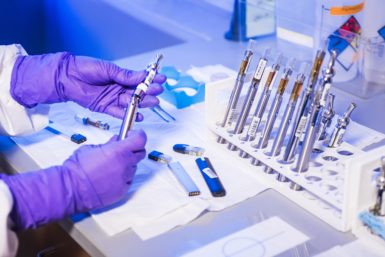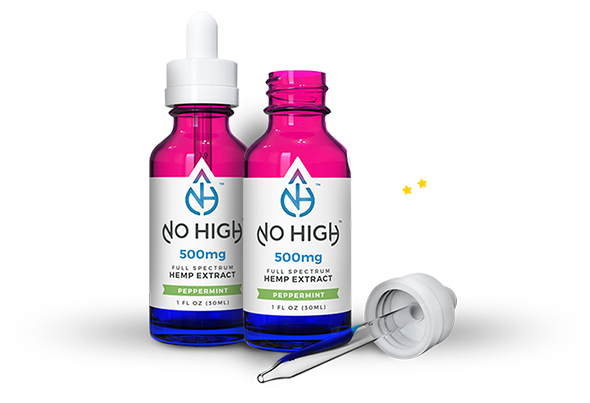Hemp Industry Daily broke the news that the DEA registration will no longer be a requirement for hemp and CBD testing labs. Reporter Laura Drotleff writes,
“Federal agriculture officials are dropping the requirement that all THC testing on hemp crops must be performed at laboratories registered with the U.S. Drug Enforcement Administration (DEA), according to industry sources. And food and drug regulators say it’s a “fool’s errand” to get people to stop taking over-the-counter CBD.”
CBD testing is important for safety. Consumers want to know that their CBD is under the legal 0.3% THC limit and free from contaminants. It is also a requirement of US hemp law. Until yesterday, CBD testing labs have been required to hold DEA registration.
CBD Lab Testing Laws
CBD lab testing is critical for compliance with US hemp laws. Not all states have access to DEA registered CBD testing labs though. There had been wide opposition to the testing requirement. Only 47 labs are registered with the DEA- not nearly enough to serve the booming hemp and CBD industry.
There is a small 15-day window for conducting CBD lab tests. In some states that means a very tight and unrealistic turn around time for CBD testing. CBD testing requires samples of hemp from rural fields to be tested prior to harvest. Getting samples from rural hemp fields to one of the few DEA registered CBD testing labs in that timeframe simply doesn’t work out well for the farmer or the testing lab.
Future Changes to CBD Laws in the US
While the USDA had the authority to change the CBD testing requirements, it lacks other authorities. Only Congress can change other parts of the Domestic Hemp Production program. Rules like the 0.3% THC limit cannot be changed by the USDA.
The USDA will continue to gather public comments about the Domestic Hemp Production program. The 2020 production season will have a public comment period opening in the fall. Public comments are an important way for the industry to provide input on the regulatory process.
CBD Regulation Changes
The press release in Hemp Industry Daily also talks about CBD regulatory foreshadowing from the FDA. FDA Commissioner Dr. Stephen Hahn talked about how the agency is moving forward. He realizes that US consumers have a growing demand for CBD. Hahn was quoted saying,
“We’re not going to be able to say you can’t use these products. It’s a fool’s errand to even approach that.”
As of November 2019, the FDA said there is still not enough research to grant CBD GRAS status (generally recognized as safe). This status would be key in bringing CBD into full legality without requiring excessive costs to companies producing CBD.
The FDA is still not revealing its timeline for releasing CBD regulation. Many expect that they will roll out something this year. Pressure from the CBD industry and Congress are increasing as many are dissatisfied with the FDA for lack of elaborating regulations for CBD products.
CBD Testing Requirements- What Does it Mean?
The change in CBD testing requirements is a big win for law enforcement, CBD testing labs, and for the hemp industry. Making CBD lab testing accessible is extremely important. If it takes too long for samples to get to labs, the sample quality may deteriorate and obfuscate accurate CBD lab test results. This can result in major losses to farmers who must ensure their crops fall within the 0.3% THC limit.
Further, many are growing frustrated with the FDA’s slow pace in CBD regulation. They have recently sent warning letters to fifteen CBD companies, claiming that products are not being legally sold. This behavior by the agency is frustrating CBD producers who are not being given clear legal guidance. Likewise, CBD consumers are growing frustrated with the number of low-quality CBD products being sold through vendors like Amazon.
